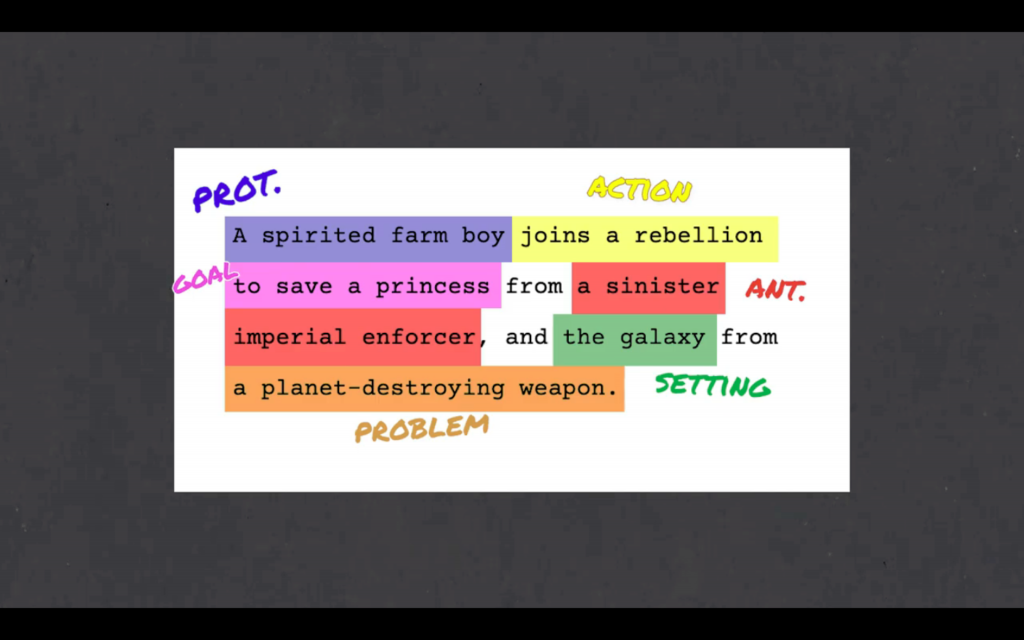
You know the hook when you get it, because it hooks you! But it does mean something, and the hook is the thing that captures that high concept in the form of an image in your mind and an emotion. The reason it's important is that if you read submission requirements from editors, they will very often say, "We want a high concept idea," but they don't ever tell you what the hell that means! So people kind of guess. Later, I will outline the seven components I’ve identified that will make your story this thing called ‘high concept’ - something that can be easily pitched with a succinct and striking logline.

It's not just a catchy, marketable hook there's a continuum of high concept. That's a whole webinar in and of itself: talking about what high concept means. But, more than anything else, it captures the high concept. You can see from these bullet points how I conceptualize the hook. Intuitively you know what I'm talking about. But I wanted to show you that what we're doing with logline fits into a normal workflow of your development process as a novelist. We're not going to talk about the premise line, synopsis, and pages here today just the hook and the logline. By the time you get to a synopsis, you've got your whole darn thing figured out. Once you have these, you should be really comfortable with starting pages on the novel. This is just what I do when I work with somebody. Everybody works differently and there are no rules - you don't have to follow Jeff Lyons's steps. The logline works into what I've developed as a writer's workflow. They would have gotten a second chance." Let’s Talk Workflow I might add that, after the Gong Show, I went up to the editors and redid some of the pitches that they’d heard, using what you're going to learn here today, and they said, "Oh, I wish they'd done that. If it's wrong, you're going to have much less chance of being taken seriously. This is why the logline is so important: because in the real world of publishing, it's your foot in the door. The editors were good enough to sit there and explain why, and when I talk about the seven mistakes that people make with loglines, these are all the things they talked about. If you got three gongs, you were out: you would be rejected by the editor. Everybody in the audience got to write their pitch, like they were doing a query letter, and the moderator then read the pitch. Everybody gathers in the ballroom, five or six publishing company editors come up on stage, and each of them has a gong in front of them. (I presented my Anatomy of a Premise Line class there.) At the end of every conference, they have this tradition they call ‘The Gong Show’. Last summer I attended the Dallas-Fort Worth Writers Conference, which is one of the largest writing conferences in the United States - hundreds and hundreds and hundreds of people come. But before we do, I want to illustrate why it’s important with a little true story.

It is an extremely important tool, and we’re going to talk about why that’s the case in a little bit. To find out more about what Jeff can do for your story, head to his profile on Reedsy.īefore we start, I want to explain a little bit about what a logline is, because if you’re a screenwriter you’ve probably heard the term before (it’s a very common term of art in the screenwriting world), but if you’re a novelist, not necessarily. This transcript has been lightly edited for clarity. He also edits through his profile on Reedsy. Jeff has written on the craft of storytelling for Writer’s Digest Magazine, Script Magazine, The Writer Magazine, and Writing Magazine (UK), among others. Jeff Lyons is a traditionally published author, screenwriter, and story development consultant with more than 25 years of experience in the publishing, film, and television industries.


 0 kommentar(er)
0 kommentar(er)
